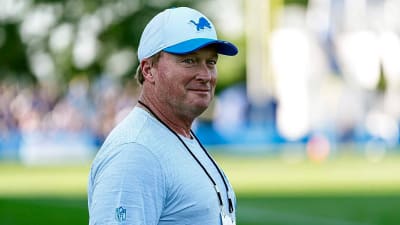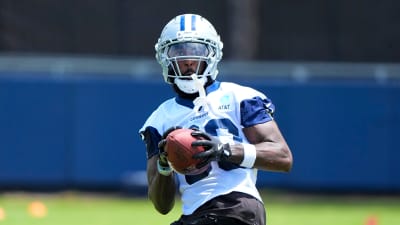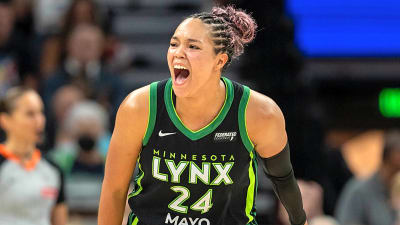
Today is the National Day for Truth and Reconciliation, an important day during which the Canadian society reflects and recognizes the atrocities that occurred towards Canada’s Indigenous population through the residential school system. During this day, and on all days as Canadians, it is important to not only remember the past, but also to try and learn from it to build a better and more inclusive future.
With this day in mind, we wanted to shine a light on Canada’s Indigenous communities in relation to hockey, and more specifically, the Toronto Maple Leafs. We will take a look at five members of the Leafs organization—one of whom is a coach—both former and current, who have roots within the country’s Indigenous communities.
Let’s begin.
Connor Dewar
Beginning with a more recent member, Connor Dewar played 48 games with the Leafs after being acquired by the team from the Minnesota Wild during the 2023–24 season. Dewar originally hails from The Pas, a town in Manitoba, and his family has roots within the Red River Metis community.
Dewar’s Metis background was discussed in detail in an episode of the Minnesota Wild’s YouTube video series Becoming Wild, where Dewar’s father, Jade, went into detail about their family’s background within the Indigenous community. Despite his relatively short time with the Leafs, Dewar was the first Leafs player since the early 2000s to have Metis heritage. The player who came before him will be discussed next.
Darcy Tucker
While Dewar had a short Leafs tenure, Darcy Tucker played with the team for nearly eight seasons. During his time in Toronto, Tucker became a fan favourite as a tough and gritty enforcer, but was also able to deliver decently on the offensive end, as shown notably in the Leafs’ 2005–06 season, where Tucker put up a career-best 28 goals and 61 points for Toronto.
Like Dewar, Tucker was of Metis descent, but was brought up in Alberta. And while Tucker never won a Stanley Cup during his 14-year NHL career, he did come close to the Cup final in 2001–02, when the Leafs lost in six games to the Carolina Hurricanes in the Eastern Conference final.
Grant Fuhr
While Grant Fuhr‘s time on the Leafs was limited, playing just over a season in blue and white, the Hall of Fame goaltender was undoubtedly an NHL legend. During his 19 seasons, Fuhr won a Vezina Trophy and five Stanley Cups with the Edmonton Oilers, playing a key role in Edmonton’s dynasty during the 1980s, the era of Wayne Gretzky.
Fuhr has both Cree and Metis ancestry connected to the Enoch Cree Nation in Alberta. Fuhr grew up in Spruce-Grove, Alta., his father an African American man, and his mother an Enoch Cree woman.
Craig Berube
Not only is Craig Berube the current coach of the Maple Leafs, but he also has an Indigenous background, with his grandmother being of Cree descent. Additionally, when Berube coached the St. Louis Blues to a 2019 Stanley Cup victory, he became the first coach of Indigenous descent to win the Cup.
Before his coaching years, Berube played 17 seasons as a player in the NHL, with a very small sample size of 40 games spent with the Leafs. It was during his early playing years that Berube got the nickname “Chief” from a fellow player, which caught on, but Berube recognizes that the title of “Chief” goes far beyond a simple nickname in Indigenous culture.
“You gotta be a little bit careful because Chief of a native reservation, that’s a very prestigious honour. And I understand that,” Berube once said in an interview.
George Armstrong
Last, but certainly not least, George Armstrong, who passed away in 2021, was one of the most iconic Leafs of all time. The Skead, Ont. native spent 11 seasons as the captain of the Leafs and won four Stanley Cups with the team, including the franchise’s most recent Cup back in 1967.
Like Berube, George Armstrong had the nickname “Chief” during his playing years and was very proud of his Indigenous heritage as the son of an Irish-Canadian father and a mixed Algonquin-Anishinabe mother. Armstrong always showed pride in his Indigenous roots, and that pride has been carried on by his granddaughter, Kalley Armstrong, who works to make hockey development and mentorship more accessible to Indigenous youth with her organization, Armstrong Hockey.
To learn more about the National Day for Truth and Reconciliation, check out the Government of Canada’s website, where you can learn more about the importance of the day, things you can do to show your support, and more about Indigenous cultures, traditions and history.
More must-reads:
- Maple Leafs' Auston Matthews endorses choice to replace Mitch Marner
- Oilers to sign HC Kris Knoblauch to multiyear extension
- The 'MLB playoff debut strikeouts leaders' quiz
Customize Your Newsletter
 +
+
Get the latest news and rumors, customized to your favorite sports and teams. Emailed daily. Always free!








